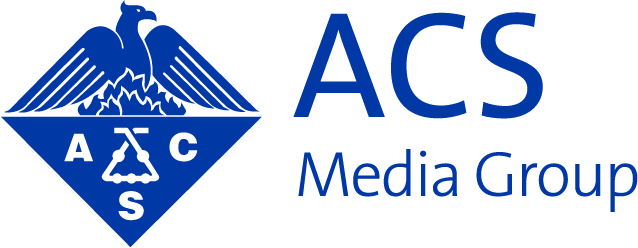The rules of search engine optimization (SEO) are a moving target – they change daily and sometimes entirely invert. Today’s crafty tactic for boosting visibility may well be tomorrow’s search penalty.
With the changing rules come changes in SEO best practices. In the old days of SEO, collecting as many links and keywords as possible was a reliable path to success. Now, however, the old tactics won’t always help. In fact, relying on outdated SEO tactics can be harmful, as search engines will penalize your website for keyword stuffing or spammy links.
A scientific audience adds additional considerations. Technical subjects may have lower overall search volumes that make keyword differentiation difficult. Trademarked names and their colloquial counterparts can both be keywords that generate relevant traffic – if you can identify the right combinations.
New SEO strategies and content can drive high-quality traffic to your website, but there are also common mistakes that set you up for disappointment. These are the three most common SEO mistakes that science marketers make.
1) Using General Keywords
You’ve found a relevant keyword with a high monthly search volume. Great; all that’s left to do is elegantly weave it into your website copy. Right?
Not quite. Two large issues arise when your SEO tactics focus exclusively on traffic volumes. The first is the quality of the traffic you’ll be receiving. Before going through pains to include a specific keyword on a given page, make sure the search term is relevant to YOUR audience. A term like “aggressive media” may describe features of your product, but it’s far more likely to attract searches with an entirely different purpose.
How can you tell if your keyword is specific enough? Run a quick Google search for your keyword. (Tip: use an incognito or private browsing window – this will prevent your search history from influencing the results.) If similar products or relevant topics appear on the search engine results page (SERP), you’ve found a good keyword.
To find other suitable keywords, think about ways to expand upon the term. This can help satisfy another key issue – is the audience looking to buy? If you try to tackle the names of experiments or techniques, such as ‘ELISA,’ a significant portion of the searches will be from scientists (or students) trying to understand that process. There is nothing in the search term that signals an intent to buy – a more specific term like ‘bulk ELISA kits’ is more likely to convert. For the broader term, you’ll also compete against Wikipedia and various dot orgs, sites that are near-impossible to outrank.
That competition brings us to the second core reason that general keywords disappoint: failing to consider difficulty scores. A difficulty score is a measure of how hard it is to rank at the top of search results for a given term. It shows, among other things, how many competing Internet pages are optimized for that keyword.
A word of caution: Google AdWords returns a ranking difficulty, but this is not the only score you want. The Google ranking difficulty is a measure of how difficult it is to rank for paid ads – not organic search. An SEO tool like Moz is the gold standard for calculating organic search difficulty scores.
Difficulty scores are delivered on a scale of one to 100 percent. A keyword with a one percent difficulty score is highly achievable, but it gets exponentially more difficult to rank as the percentage scores climb up. Larger companies with powerful websites can optimize for words that are 40 percent and higher. If your website is young and light on content, however, it’s not worth chasing keywords over 35 percent. You simply can’t compete.
Good keywords have a favorable ratio of search volumes to difficulty scores. They may be harder to find than sweeping general terms, but the time investment is worth it. Hidden gems exist in every science sector, and allow you to succeed regardless of your budget.
2) Missing Out on Colloquial Terms
As a science company, you probably work with specialized equipment. Whether it’s codified in guidelines and branding, or just an aspect of the company culture, there’s a high chance that you have a particular way of referring to your equipment. There may even be legal restrictions on the external language you use.
When considering relevant keywords, it’s natural to jump to the product names you’re familiar with. However, it’s important to consider that scientists often refer to equipment colloquially. There is no guarantee that they use the exact, technical terms that you do.
Take centrifuge columns as an example. The term “centrifuge columns” is not very difficult to rank for, but it also only gets around 10 searches per month (at the time of writing). The term “centrifuge tubes” does much better, with 1300 searches per month, but it may be hard to rank for depending on the size and authority of your website.
Fortunately for the centrifuge column distributer, the terms “spin tube” “spin column” and “spin columns” all generate solid search volumes (between 140 and 880 searches per month) without being incredibly difficult to rank for. These are terms that companies don’t use to sell their products, but they’re what the consumer knows and searches for. Including these colloquial keywords can help you identify new opportunities while helping you rank for a wider variety of terms. The key here is knowing what your audience is searching for – adopt a scientist’s perspective and frame keywords accordingly.
[bctt tweet=”SEO tip: Including colloquial keywords can identify new ones & help rank for a wider variety of terms” username=”CENMediaGroup”]
3) Poor Link Building
The number and quality of links pointing to your site have a profound effect on your SERP ranking. If a lot of high quality websites are linking to your content, it’s an indication that your content is itself high quality. Search engines recognize this and bump up your website as a result.
If more links is better, it’s natural to jump into aggressively increasing the number of links to your site. But if you chase link numbers, you are likely to sacrifice link quality.
Low quality domains linking to your site do little to help your rankings, and can sometimes even hurt them. Additionally, acquiring too many links too quickly is suspicious – if people were linking to your content simply because it is valuable, the build up of links should gradually occur over time. Quickly amassing a high number of links can be an indication that something is wrong, and may hurt your ranking. Focusing on high-quality links, like those from well-regarded publications, media outlets or product comparison pages, is therefore more valuable than simply having a lot of links.
As you do gradually collect links, it’s important that you point them in the right direction. Having links to your home page is nice, but likely less valuable than pointing potential readers to specific pieces of content. Readers are typically looking for answers to their questions, and your home page is not the place they will find them. Ranking for pieces of content will reduce your bounce rate, and the increasing authority of your content will boost your home page rankings as well.
Specific and carefully considered keywords, when combined with effective link building, can drive massive traffic to your website. Avoid outdated SEO tactics and common mistakes to naturally attract high-quality leads.
What are your favorite SEO tactics?


















